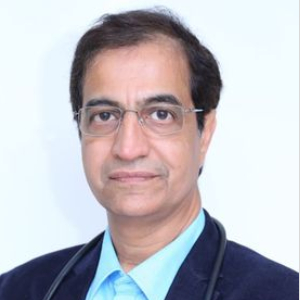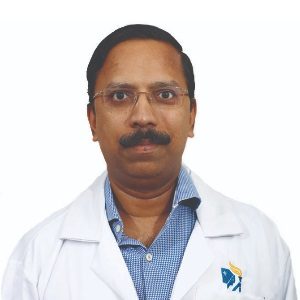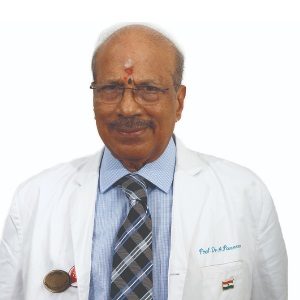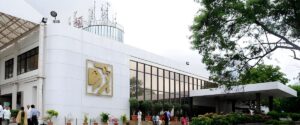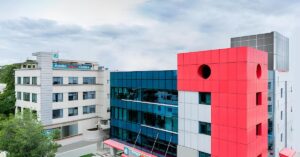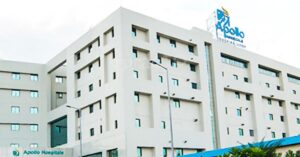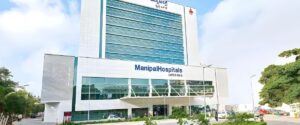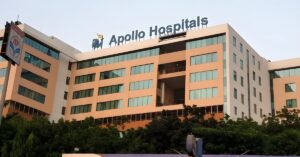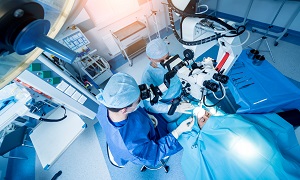Best Stroke surgery Surgeons in India
- Stroke Specialist & Neurologist, Mumbai, India
- Over 30 years’ experience
- Gleneagles Global Hospital Parel Mumbai
Profile Highlights:
- Dr. Shirish M Hastak is one of the best Stroke Specialists in India with a specialization in Neurology.
- Dr. Hastak underwent training in stroke management under world-renowned neuroscientist, Dr. Vladimir Hachinski at the Western University of Canada.
- He holds more than 30 years of experience as a neurologist among which he has spent 2 decades mastering stroke management.
- Neurologist, Chennai, India
- Over 33 years’ experience
- Apollo Hospitals Greams Road
Profile Highlights:
- Dr. Arulselvan V L is one of the finest Neurologists in India, with an overall experience of nearly 33 years.
- Dr. Arulselvan was bestowed with an Excellence Award for aptitude in Anatomy in his academics.
- He takes a holistic approach to treating conditions like Myelitis, Encephalitis, Meningitis, Cerebral or Brain Aneurysm, PSR, PBC, Brain Tumor Surgery, and Sleep Disorders and performs different therapies.
- He has a periodical ‘JIAN’ under his name.
- Neurologist, Chennai, India
- Over 34 years’ experience
- Apollo Hospitals Greams Road
Profile Highlights:
- Dr. Panneer A is one of the most renowned Neurologists in India with over 34 years of research and clinical experience in the field.
- Dr. Panneer A has great expertise in Migraine treatment and neurological disorders management.
Best Stroke Surgery Hospitals in India
- City: New Delhi, India
Hospital Highlights:
- Equipped with 650 beds, BLK-Max Super Speciality Hospital is the largest stand-alone private sector hospital in Delhi.
- With over 1500 healthcare providers and 150 globally renowned super specialists, the hospital is one of Asia’s largest BMT Centres. The hospital is known for having some of the best cancer doctors in the country.
- The hospital is NABH and NABL accredited and was inaugurated by the first Prime Minister of India. Pt. Jawahar Lal Nehru.
- City: Hyderabad, India
Hospital Highlights:
- Located in the vibrant city of Hyderabad, Apollo Health City is a world-renowned medical facility that provides outstanding care and treatment to patients coming from different parts of the world.
- Founded in 1988, this 550-bed multispecialty hospital with 50 specialties and 12 Centres of Excellence continues to deliver outstanding outcomes for patients with the simplest to the most complicated medical conditions.
- Backed by the latest medical equipment and a dedicated team of professionals, the hospital provides comprehensive treatment across various specialties including, cardiology, critical care, neurosciences, cancer, orthopedics, gynecology, ENT, transplants, gastroenterology, etc.
- Apollo Health City is a cutting-edge healthcare facility that combines various facilities under one roof. These may include state-of-the-art physical medicine, rehabilitation, and wellness services with education, research, telemedicine, innovative medical devices, disease management programmes, and medical talents.
- The hospital is known for offering top-notch cancer treatment accompanied by cutting-edge facilities and technology.
- The hospital also offers a broad spectrum of cosmetic procedures that improve not just appearance but also comfort.
- In 2011, Apollo Health City was the recipient of the Asian Hospital Management Award (AHMA).
- In 2013, the Government of India recognized Apollo Health City as the top medical tourism destination in the country.
- City: Mumbai, India
Hospital Highlights:
- Kokilaben Dhirubhai Ambani Hospital, Named after the wife of Indian industrialist Dhirubhai Ambani, the founder of Reliance Industries, this is one of the top hospitals in Mumbai. This 750-bed multi-specialty hospital became operational in 2009. Known as one of India’s most advanced tertiary care facilities, the hospital is designed to raise India’s global standing as a healthcare hub, with an emphasis on excellence in clinical services.
- Kokilaben Dhirubhai Ambani Hospital uses Protocol and Care Pathway based treatment models to ensure the best outcomes for patients.
- The hospital represents a confluence of top-notch talent, cutting-edge technology, state-of-the-art infrastructure, and, most importantly commitment.
- The hospital also holds the accreditation of the NABH, NABL, CAP, and JCI.
- The hospital has been recognized as the No. 1 Multispecialty Hospital in Mumbai and the West Zone for the fifth year in a row in 2020 by The Week.
- City: Chennai, India
Hospital Highlights:
- Apollo Cancer Centre in Teynampet, Chennai is one of the best super speciality hospitals in India. It is the country’s first ISO-certified healthcare facility.
- Additionally, it is the first hospital in Chennai and the first oncology hospital in India to receive NABH accreditation.
- The hospital provides advanced tertiary care in oncology, orthopedics, neurology and neurosurgery, head and neck surgery, and reconstructive and plastic surgery.
- Additionally, it offers specialized healthcare of international standards with results comparable to those of the best hospitals in the world.
- It is outfitted with 300 beds, the newest and greatest technology, a large pool of highly qualified specialists, and a committed team of medical and paramedical professionals.
- It is one of the first few medical facilities in India to offer comprehensive cancer care. A team of skilled medical, surgical, and radiation oncologists makes up the Tumour Board, which is a component of the complete treatment planning system. After reviewing reported cases, the Board determines in concert with diagnostic specialists what course of action is best for each individual patient. The panel is further supported by dieticians, medical counselors, speech therapists, and other pertinent specialists.
- The hospital launched the first ExcelsiusGPS® Spine Robot in South India and has completed over 50 surgeries till date.
- It is also one of the few cancer hospitals in India to offer Cyber Knife therapy. Till now it has completed 1320 Cyber Knife therapies.
- The institution is also one of the few in India with the capacity to do transplants and find a prospective unrelated donor. The hospital has performed over 1000 BMTs till now.
- Furthermore, it has an exceptional milestone of performing exultant Micro vascular free tissue transfer and Aesthetic surgeries on more than 1000 patients with success.
- City: Chennai, India
Hospital Highlights:
- Apollo Hospitals, Chennai, is one of the best hospitals for heart care in India. Over the years, Apollo has expanded all over India, as a healthcare chain.
- India’s first ‘Only Pancreas’ transplant was performed in Apollo Hospital. The hospital is known for successfully performing Asia’s first en-bloc combined heart and liver transplant, and over the years, it has attained a remarkable achievement in the global healthcare space. Around 3-4 organ transplants are performed in the hospital per day.
- Equipped with over 500 beds, this hospital in Chennai was established in 1983 and since then has been among the most preferred hospital for patients from all over the world.
- The hospital holds accreditation of the NABH and JCI and is the first hospital in India to be ISO 9001 and ISO 14001 certified. It is also the first South Indian Hospital to receive subsequent reaccreditation from the JCI USA 4 times.
- City: Chennai, India
Hospital Highlights:
- Established in 1999, Gleneagles Global Hospital, Chennai, is one of the top healthcare facilities in Southern India. It is part of the Gleneagles Hospital Chain, which is the fourth largest healthcare chain in the country. The hospital specializes in multi-organ transplants of kidneys, liver, lungs, heart, etc.
- The hospital has an excellent infrastructure and state-of-the-art lab and equipment set-up. The hospital boasts cutting-edge technologies, a highly skilled team of doctors and surgeons, and trained support staff. Located in Perumbakam, Chennai, it is one of India’s premier health care destinations. The hospital has performed some of the most complex surgical and clinical procedures in India including multi-organ transplantations.
- The hospital’s lung transplantation program is one of the best in the country. The hospital is known for having performed India’s first single lung transplant and first minimal invasive lung transplant. It is also the only Indian hospital to be associated with King’s College Hospital, London, United Kingdom for liver transplantations.
- City: Hyderabad, India
Hospital Highlights:
- KIMS Hospital (a brand name of Krishna Institute of Medical Sciences) is one of the largest and best multi-speciality hospitals in Hyderabad. The hospital provides various treatments to an enormous number of patients.
- The hospital has a capacity of more than 3000 beds. KIMS Hospitals offers different healthcare services in more than 25 specialities and super specialities.
- The hospital is equipped with modern medical equipment and technology. It has robotic equipment to provide minimal invasive techniques for patients.
- The hospital is aimed at providing world-class healthcare facilities and services at an affordable cost for patients.
- The various specialities and departments of the hospital include neurosciences, gastroenterology & hepatology, robotic science, reproductive sciences, dental science, oncological sciences, organ transplantation, heart and lung transplantation and mother and child care.
- City: Kolkata, India
Hospital Highlights:
- Established in 2003, Apollo Gleneagles Hospitals is a 750-bed multispecialty tertiary care hospital situated in Kolkata.
- With 33 Centres of Excellence and more than 50 specialties, Apollo Gleneagles Hospitals, Kolkata is capable of handling all sorts of patients.
- This tertiary care hospital, which is a 100% subsidiary of Apollo Hospitals Enterprise Ltd., India, is regarded as one of Kolkata’s top hospitals.
- The facility is a complete blend of cutting-edge technology, state-of-the-art infrastructure, and genuine hospitality.
- Focusing on numerous specialties, the hospital provides all-inclusive medical treatments supported by cutting-edge technology and a staff of highly qualified medical specialists.
- Patients across the globe come to Apollo Gleneagles Hospitals Kolkata for their treatment. Moreover, international patients receive full attention and assistance for their treatment and are provided with a hassle free experience.
- Apollo Gleneagles Hospitals, Kolkata is the only hospital in Eastern India to hold the Joint Commission International (JCI) certificate.
- It is also the only hospital in Kolkata to hold the NABL accreditation in six different categories, which includes Clinical Biochemistry, Clinical Pathology, Hematology & Immunohematology, Microbiology & Serology, and Histopathology & Cytopathology.
- Furthermore, Apollo Gleneagles Hospitals, Kolkata is known for performing the first ever Reverse Shoulder Prosthesis Replacement in East India.
- City: Bengaluru, India
Hospital Highlights:
- Established in 1991, Manipal Hospital, Old Airport Road, Bangalore is the flagship facility of the Manipal Hospitals Group, which is one of the largest networks of Multispecialty Private Hospitals in India.
- The facility is well-known for its state-of-the-art technology, performance-driven, patient-centric, and evidence-based approach.
- The facilities offered at Manipal Hospital meet the highest international standards, allowing the hospital to attract a large number of national and international patients.
- Their expertise encompasses the diagnosis and treatment of a wide range of diseases in several specializations that address both simple as well as complex medical procedures.
- There are total 600 beds accessible in the hospital for the in-patients so they may heal while being closely watched after by the medical team. In addition, it has 144 critical care units, including NICUs, ICCUs, and ICUs. Apart from that, the hospital also offers 20 contemporary, modular state-of-the-art operating rooms with all the amenities needed.
- The hospital has several departments that are overseen by highly skilled, certified, and experienced medical experts.
- One of the best departments in the hospital is that of the Cancer department which is known for its advanced cancer diagnosis and treatment facilities such as Intracavitary Chemotherapy, Biological Therapy, HIPEC, PIPEC, Nuclear Medicine, Radiation Therapy, etc.
- It is one of the few hospitals in Bangalore that provides full range of pediatric services, including pediatric emergency services, pediatric gastroenterology, pediatric neurology, pediatric cardiology, pediatric orthopaedics, pediatric allergies, pediatric immunology, and infectious diseases.
- Furthermore, Manipal Hospital, Old Airport Road, Bangalore is also regarded as one of the best hospitals for bone and spine related disorders.
- City: Mumbai, India
Hospital Highlights:
- Established in 2016, Apollo Hospitals, Navi Mumbai is one of Maharashtra’s most advanced multispecialty hospital. This 500-bed hospital provides sophisticated treatments and integrated super specialty services under one roof.
- The hospital features a cutting-edge infrastructure that houses 13 state-of-the-art operating rooms, advanced laboratory and medical diagnostics, and 120 ultra-modern I.C.U. beds, including N.I.C.U. and P.I.C.U., monitored round the clock by critical care specialists.
- With 57 specialties and subspecialties, the hospital boasts a team of renowned medical specialists who offer accurate diagnosis and treatment with easy accessibility to their patients.
- Additionally, the hospital offers highly customized, individualized health check programs that are made to fit each person’s needs in terms of lifestyle.
- Apollo Hospitals, Navi Mumbai has been accredited by both the National Accreditation Board for Hospitals and Healthcare Providers (NABH) and the Joint Commission International (JCI).
- Apollo Hospitals Navi Mumbai has been awarded the “Best Practices-International Services Award” at the annual awards for service excellence and operations excellence.
Stroke
When one of the blood vessels in the brain ruptures and bleeds and the blood supply to the parts of your brain is interpreted, this prevents the brain from receiving essential nutrients and oxygen. This can cause damage as well as the death of brain cells within a few minutes.
A stroke is considered a medical emergency and it is extremely important that prompt treatment is provided to reduce brain damage or other complications.
Fewer people die of stroke today as compared to the past due to advanced treatment.
Symptoms of Stroke
If you or anybody is having a stroke, it is important to pay attention to the symptoms as they begin, as treatment is more effective if it is provided sooner. Some of the signs of a stroke can include:
- Paralysis
- Confusion
- Trouble speaking or understanding
- A feeling or numbness or weakness in the arm, face, and leg on one particular side of the body
- Trouble walking and/or loss of balance
- Slurring speech
- Vision problem
- Severe and sudden headache
- Dizziness
If you see someone with signs of strokes, don’t wait to see if the symptoms stop. Call a local emergency immediately, as the sooner a stroke is treated, the more the chances are that brain damage and disability can be prevented.
Types and causes of Stroke
There are two different causes of stroke: a blocked artery, which is called ischemic stroke; or the leaking and/or bursting or a blood vessel, which is called a hemorrhagic stroke.
Ischemic stroke: This kind of stroke is more common and it occurs when the brain’s blood vessels get narrowed or blocked. This causes the blood flow to get reduced severely. Blocked and narrowed blood vessels are a result of fatty deposits that build up in the blood vessels. It can also be caused by blood clots or other debris that can travel through the bloodstream and lodge in the brain’s blood vessels.
Hemorrhagic Stroke: Hemorrhagic stroke is caused when a blood vessel in the brain leaks and ruptures. Brain hemorrhages can happen due to many conditions that affect the blood vessels. Some of these factors can relate to hemorrhagic stroke:
- Uncontrolled high blood pressure
- Bulges at weak spots in your blood vessel walls
- Overtreatment using blood thinners
- Trauma (such as an accident)
- Protein deposits in the walls of the blood vessel leading to weakness in the vessel wall
- Ischemic stroke leading to hemorrhage
Transient ischemic attack (TIA)-
A transient ischemic attack also referred to as a ministroke, is a temporary period of symptoms that are similar to those that one has in a stroke. It doesn’t cause permanent damage. It can be caused by a temporary decrease in blood supply to the brain, which can last for as little as five minutes.
It is important to seek emergency care, as it is not possible to know whether you had a stroke or TIA by looking at the symptoms alone. If you had a TIA, it could mean you have a partially blocked or narrowed artery that leads to your brain. Having a TIA can increase your risk of having a full-blown stroke.
Diagnosis of Stroke
While assessing a stroke patient, it is important to determine whether the patient is suffering an ischemic or hemorrhagic stroke. Once this is determined, the proper treatment can begin. Uuslaly the first test that is performed is a CT scan or an MRI.
CT scan
CT scanning is the combining of special x-ray equipment with multiple computers to produce images of the inside parts of the body. The CT of the head is used to detect a stroke from a blood clot or bleeding within the train. CT autography might also need to be performed to improve the detection and characterization of stroke.
MRI
MRI is another method, where a powerful magnetic field, radio frequency pulses as well as a computer is used to produce detailed pictures of organs, bones, soft tissues and other internal body structures. It can also be used to image the cerebral vessels which is called MR angiography. Using MRI of the head, brain damage from a stroke can be assessed.
Your doctors might also use other methods to help in determining the type, location and cause of a stroke. These can include blood tests, Electrocardiogram, carotid ultrasound and cerebral angiography.
Treatment options for Stroke
Treatment for ischemic stroke
Treatment for Hemorrhagic Stroke
This kind of stroke requires you to find and control the bleeding. The most common reason for this kind of stroke is uncontrolled high blood pressure. If this was your reason, you will need medicine to lower it.
If the stroke was caused by an aneurysm, your doctor can clamp the broken vessel closed or thread a tiny coil through it in order to prevent the blood vessel from bursting again.
The doctor may perform surgery to remove the blood if the area of bleeding is large. Surgery is also used to repair problems related to blood vessels, which are associated with hemorrhagic strokes.
Once the cause of your stroke is treated, your doctor will work with you to lower your chances of experiencing another one. They might help you in keeping your blood pressure in a healthy range.
Risks of Stroke
The following factors can increase the risk of having a stroke
- Being overweight or obese
- Physical inactivity
- Heavy drinking
- Use of illegal drugs like cocaine
- High blood pressure
- Cigarette smoking or exposure to secondhand smoke
- High cholesterol
- Diabetes
- Obstructive sleep apnea
- Cardiovascular diseases, which can include heart failure, heart defects, heart infection or abnormal heart rhythm
- Having a personal or family history of stroke, heart attack or transient ischemic attack
Complications of Stroke
A stroke can lead to temporary or permanent disabilities which depend on how long the brain attacks the blood flow and which part was effective.
Some of the complications include:
- Paralysis or loss of muscle movement- You might become paralyzed on one side of your body as a result of stroke or even lose control of certain muscles such as the ones on one side of your face.
- Memory loss or difficulty in thinking- Many people who have experienced strokes have had some difficulty in thinking, reasoning and understanding and have also shown signs of memory loss.
- Difficulty in talking or swallowing- A stroke can affect control of the muscles in the mouth and throat, which makes it difficult for one to talk properly, eat or swallow. One might also have difficulty with language, including understanding speech or reading.
- Emotional Problems- People who have suffered from strokes can also experience difficulty in controlling their emotions and they might develop depression as well.
- Pain- Pain, numbness and such sensations can also occur in parts of the body, which is affected by stroke.
- Changes in behavior and self-care ability- People who have suffered strokes can also become more withdrawn. They might need help with grooming or daily chores.
Rehabilitation
Prevention of Stroke
It is important to follow the following steps and strategies if you are looking to prevent stroke:
- Controlling high blood pressure or hypertension- This is one of the most important things that one can do to reduce the risk of stroke. If you’ve suffered a stroke, lowering your blood pressure can prevent a further TIA or a stroke. Along with medications, you will need to make changes to your lifestyle to treat high blood pressure.
- Managing Diabetes- Proper diet, exercise and maintaining a healthy weight can help in keeping the blood sugar in a healthy range. This can decrease the risk of stroke.
- Quitting Tobacco Use- Smoking raises the risk of stroke not just for smokers and non-smokers who are exposed to second hand smokers.
- Lowering the amount of cholesterol and saturated fat in your diet- Eating less cholesterol and fat, especially saturated fat and trans fats can help in reducing the buildup in the arteries. If your cholesterol can’t be controlled through dietary changes, then your doctor might prescribe you a medication for lowering cholesterol.
- Eating a diet rich in fruits and vegetables- A diet that contains five or more daily servings of fruits and vegetables can also help in reducing the risk of stroke.
- Regular exercise- If you exercise regularly, it will significantly reduce the risk of stroke as well. Exercise can also help in losing weight, controlling diabetes as well as reducing stress. Try to provide your body with at least 30 minutes of moderate physical activity daily.
- Reducing alcohol consumption and avoiding illegal drugs- If you consume too much alcohol, it can also lead to a high risk of blood pressure, ischemic strokes and hemorrhagic strokes. However, moderate drinking will help in preventing ischemic stroke as well as decreasing the clotting tendency of the blood. Street drugs such as cocaine and methamphetamine can also increase the risk of a TIA or stroke.
There are also preventive medications that can be recommended by your doctor, to help reduce your risk of stroke. Antiplatelet drugs can make the platelets in your cells less sticky and less likely to clot. Aspirin is the most commonly used antiplatelet medication. It is also important that your doctor recommends the correct dosage of aspirin for you.

